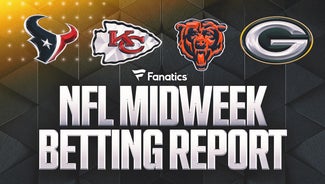
How the Dallas Cowboys blew it
It's the one that got away, again.
Yes, the Dallas Cowboys made a brilliant 15-point comeback in the fourth quarter to tie the Green Bay Packers with 35 seconds remaining in their NFC Divisional Round playoff mega-showdown. Yes, on third-and-20 with under 10 seconds left, Aaron Rodgers managed to roll out and throw a bullet to Jared Cook, who somehow got both feet in bounds just before falling to his knees on the sideline. Yes, Mason Crosby hit two jaw-dropping late field goals from 50-plus yards, including the game-winner (kicks have never been more exciting -- the first was a knuckler that somehow tumbled in, the second looked wide left before drifting back in with no time on the clock). But despite the magical effort it took from the Packers, you still can't shake the feeling that Dallas let one go en route to a fifth straight loss in the divisional round that extends their franchise record 21 straight years without an appearance in the NFC Championship game.
This wasn't a playoff choke or a collapse -- the kind that's felled Dallas on different occasions during that drought. There's no lasting image of Tony Romo sitting in shock on the field, like he was that night in Seattle 10 years ago. The Cowboys can hold their heads high. This was more a missed opportunity, a gift given and declined. In a way, that makes it more painful.
It took so much to get back in the game in the first half and then to stay there when Rodgers had the Packers on the verge of going up three scores late in the third quarter. After crawling all the way back, the Cowboys had Green Bay facing that third-and-20 and overtime, which was inevitable, felt like the Cowboys' to lose. Rodgers would have a lot to say about that, but unless Green Bay won the toss and scored a touchdown, that Packers defense -- undermanned, overmatched and exhausted -- would have to see the field. Advantage: Dallas. The Dallas offense was moving at will in the fourth quarter. Though the final minutes of the game brought the sense that the last team to hold the ball would be the team that won, you just sort of assumed that team would be Dallas.

The play that technically ended the Cowboys season was the Crosby 51-yard field goal. The play that essentially ended the Cowboys season was the 36-yard pass immediately before it. But when the autopsy on the Dallas season is complete -- a season in which the team tied a franchise record for wins (yup, not even Troy, Emmitt and Michael ever had more than 13 victories), earned home-field advantage for the second time in 20 years and had a phenomenally successful rookie combo at quarterback and running back that the league had never seen before -- there's one play that started all the dominoes.
Late in the game, with Dallas trailing by three, Dak Prescott hit Jason Witten for an 11-yard gain to set up first-and-10 at the Green Bay 40 with 49 seconds left and the Cowboys holding one timeout. They had enough time and downs to do what they wanted. But when Prescott took the first-down snap, he spiked the ball to stop the clock. The ripple effect was subtle but undeniable.
You kill the clock when there's no other option. You don't kill the clock when you have plenty of time to run plays and downs are your most precious commodity. Yet the Cowboys -- down three and in field-goal range -- wasted one of their three offensive downs because they didn't want to take a few more seconds to call a play. They killed a clock that wasn't close to killing them. It had a multi-pronged effect:
1. Dallas would only have two plays to make a first down because, barring a sack, it would have to attempt the game-tying field goal on fourth down. When you have first down why do you intentionally make it second?
2. The spike cut down the chances of an Ezekiel Elliott run on the next two plays. A handoff to Zeke should have been called on first down, and if his 5.7-yards per carry were any indication that could have put Dallas in a position to run any number of plays on second or third. Instead, Elliott didn't get the ball again and Dallas had to kick. Elliott getting only 22 carries against a Packers defense unable to stop him was practically criminal. If he'd had 30, that defense might have collapsed unto itself. Instead, the Cowboys passed eight more times than they ran, a situation brought on by the deficit but exacerbated by a lack of guts and imagination. Prescott was great, Dez Bryant played one of his best games, and the Packers corners couldn't hang. But Zeke was the force behind all of it. Once the ball was taken out of his hands, Green Bay's defense stiffened.

3. And then there was the ultimately crippling effect. When a team's down in a game it's easy to say it should do this or that with the clock. Don't score too early! Let some time run off! (Don't spike it!) But that's hindsight stuff. In the moment, you have to worry about getting your points. Since the Cowboys' worry was in stopping the clock with 49 seconds left, when the second- and third-down plays both stopped the clock there was still 35 seconds left after Dan Bailey kicked his game-tying field goal.
Those precious seconds would prove fatal, leading to another offseason in Big D of wondering where it all went wrong.










